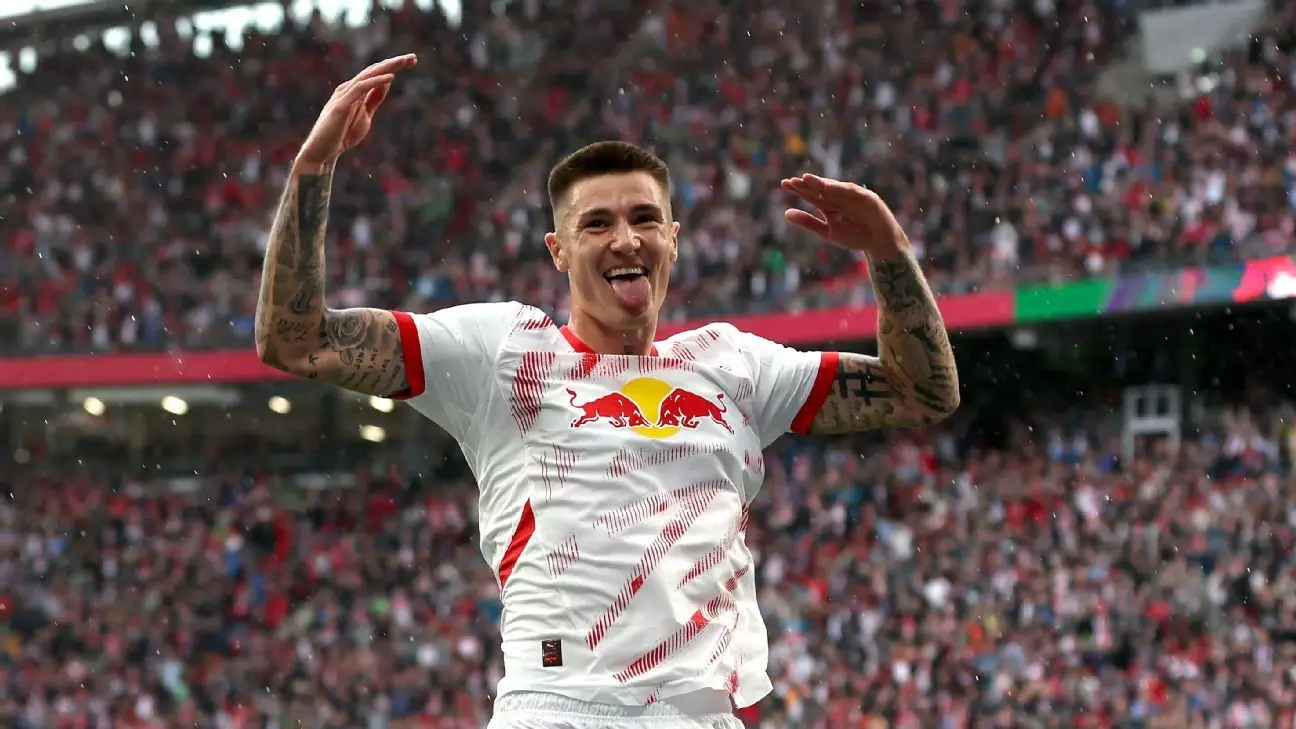In the high-stakes world of Premier League football, Newcastle United is proving to be a club with unwavering ambitions. The recent pursuit of forward talent, notably Benjamin Sesko from RB Leipzig, underscores their desire to elevate the squad’s attacking potency. Yet, beneath the surface of these rumors lies a complex narrative driven by strategic planning, financial muscle, and the relentless pursuit of excellence. While other clubs might hesitate, Newcastle’s aggressive bid—reported to be around €75 million—demonstrates a willingness to break the bank for the right players. Such boldness signals that they are not content to settle for mediocrity but aim for elite performers capable of transforming their offensive threat.
This transfer strategy reveals a club that is unafraid to make significant financial commitments, even in a fiercely competitive environment where giants like Manchester United are also circling. The choice of Sesko, a young star with a rising reputation, exemplifies Newcastle’s vision of building a team that combines youth and talent with immediate impact. Such moves are risky—investments of this magnitude might not always yield expected results, but in the context of modern football, they are often the only way for clubs outside the traditional elite to make a splash and secure their future.
The Political and Emotional Dynamics of Player Transfers
Behind the scenes, the transfer window is much more than figures and negotiations; it is a human drama involving emotional decisions, strategic calculations, and club loyalty. Newcastle’s boss Eddie Howe admits to the complex and “far from ideal” state of their squad, particularly regarding Alexander Isak’s unsettled situation. The fact that Howe learned about Isak training with a former club via the media illuminates a disconnection between management and player and underscores the challenge of dealing with transfers in an increasingly transparent age.
Isak’s case is emblematic of a broader phenomenon: players seeking greener pastures often find themselves at odds with their current clubs. Newcastle’s rejection of a record-breaking £110 million bid from Liverpool for Isak, coupled with public statements supporting the player’s future at Newcastle, reflect the delicate balancing act involved. The club must weigh financial offers against team stability and morale, all while navigating media speculation. This internal turmoil could weaken the squad’s cohesion unless handled delicately, and it obliges Newcastle to be strategic and resolute in their transfer choices.
Strategic Targets and the Future of Newcastle’s Attack
Delving into Newcastle’s pursuit of Sesko shows a club that is not just throwing money blindly but is focused on aligning talent with their long-term vision. While public reports suggest that Sesko prefers a move to Newcastle over Manchester United, the club remains cautious and discreet, highlighting the importance of maintaining a level of confidentiality in transfer dealings. Howe’s comments about “looking for the best players” and prioritizing quality over quantity affirm their philosophical stance: it’s better to acquire fewer top-tier players than numerous mediocre ones.
This approach reflects a broader philosophy of sustainable success—building a squad that can adapt, grow, and contend over multiple seasons. Yet, this method involves constant negotiation, patience, and sometimes acceptation of setbacks, such as missing out on other targets. It’s clear that Newcastle’s transfer strategy isn’t just about immediate results but about laying foundations that can sustain success in the fiercely competitive Premier League. The club’s readiness to invest heavily signals a shift in the league’s power dynamics—no longer are the top clubs solely reliant on legacy; new money, strategic vision, and smart recruitment are reshaping the landscape.
Concluding Reflection: Ambitions as a Double-Edged Sword
Newcastle’s aggressive pursuit of high-profile talent highlights a club eager to redefine its identity and challenge traditional powerhouses. However, this relentless ambition comes with risks—financial strain, cultural disruption, and the difficulty of integrating new players swiftly into a cohesive team. The uncertainty surrounding Isak’s future and the ongoing negotiations for Sesko underscore the delicate nature of modern football transfers, where emotions, negotiations, and strategic calculations intersect.
At this moment, Newcastle stands at a crossroads—balanced between the promise of greatness and the pitfalls of overreach. Boldness can catapult a club into new heights, but it must be tempered with prudence, patience, and a clear vision. If managed wisely, their current transfer pursuits could serve as a blueprint for clubs seeking to rise through intelligent investment and unwavering resolve. Their story is not just about signing players; it is about rewriting the plot of what a club like Newcastle can achieve through strategic daring.

